To make your vision a reality there are two elements you may need the people in your support network to help you with.
The first may be to develop the vision itself.
You may feel you are lacking confidence to really believe that you could do what you want to… you may feel you are not clever enough, fit enough, strong enough – there may be barriers that are stopping you being as confident as you could be.
It may be that you can’t pinpoint what you want to do and your vision itself needs some work. You need someone who can be creative and come up with some bright ideas to help you or perhaps someone who could act as a role model so you could learn more about what they have done and how you could learn more from them.
The second element you may need your support network to help you with is making your vision real. Here you may need someone who can challenge you and give some practical solutions to the problems you have. You may need help from someone who can connect you with an expert in the field of work or learning you are interested in but again you do not know who to ask.
The Circle of Support you have around you all have an incredible mix of different skills, knowledge, strengths and expertise to help.
Maximising my circle of support
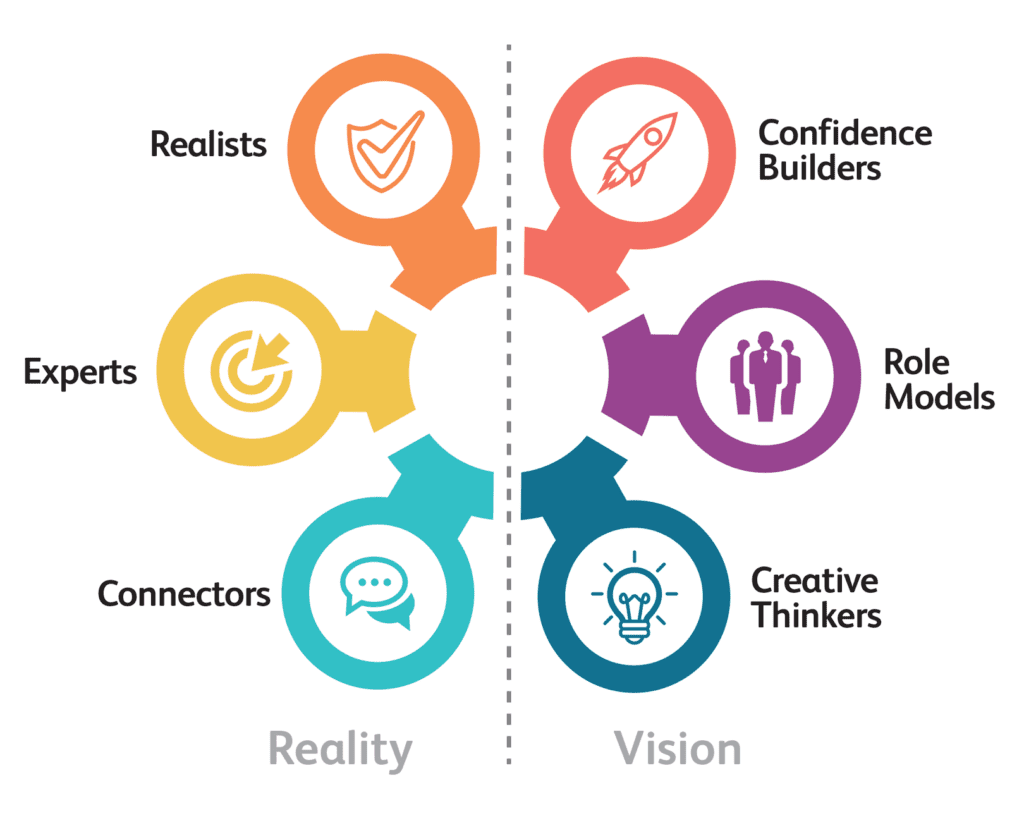
Realists
Providing challenge and realism, keeping your feet on the ground, assessing risks and consequences and giving practical solutions and alternatives.
Experts
Specialist knowledge of, or skill in, your area of interest, offering market intelligence, advice, guidance, coaching, training or support.
Connectors
People who are well connected, that open doors, make connections and link you with opportunities and experiences that help achieve your vision.
Confidence builders
Positive, encouraging and caring people who believe in you, build hope and help boost your wellbeing and resilience when times get tough.
Role models
People in roles you would love to be in, people with shared experiences or people displaying positive behaviours and values you can learn from.
Creative thinkers
People great at generating bigger and bolder ideas, imagining new possibilities, providing fresh perspectives and thinking outside the box.
Take a look at the types of support below and consider what type of support do I need now? Then ask yourself who in my circle of support could help me with this?
Take a look at the people you listed in your Support Network and make a note of those who you feel have the particular skills, expertise or knowledge to help you with what you need.
Remember if there isn’t anybody obvious who can help consider asking those people you do know if they know of anyone who can help you. Getting a referral for help can be just as good and usually there is always someone out there willing to help if you only just asked them.
The support I need
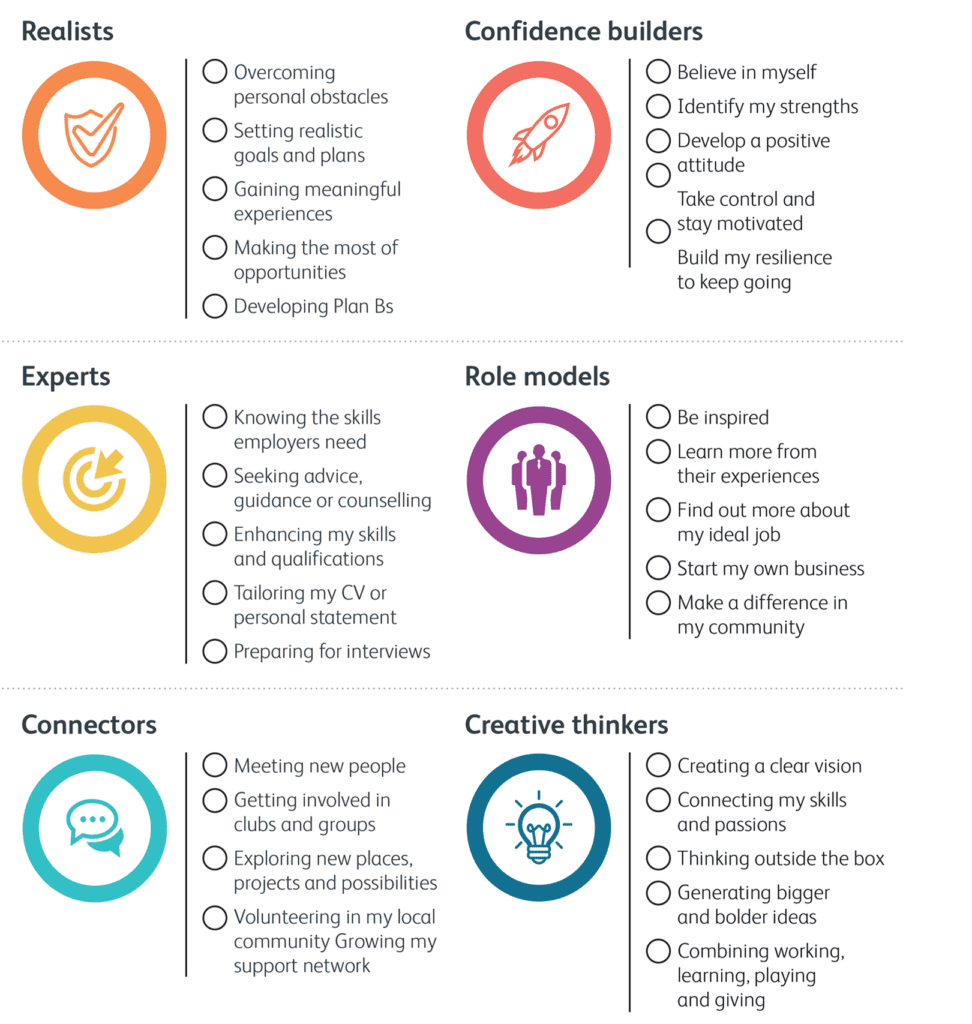
Finally consider how am I going to get them to help me and what questions do I need to ask them?
Think about how you are going to approach the person. If it is someone you know well this may not be so crucial but if you don’t know them too well you may need to plan how best to introduce yourself, make initial contact and reach out. Is this best being done face to face, email, twitter, linked-in or phone? What do you feel would work best? Consider when you are going to do this, how urgent is it?
Think again about asking someone you know well and trust for some help with this.
Having identified the person you may wish to talk to and the help you may need from them, it can then sometimes be difficult to know just what to say to them. Sometimes you can trip yourself up by not thinking about what you want to learn from them in advance and what you want the purpose of the conversation to be.
Having a plan of what you want to say when you get the chance to talk can help you make the most of your discussions.
For example you may have particular questions you want to ask about going on to study further at college, or University or you may wish to know more about a work role or sector. The following Creative Conversations for Working and for Learning may help you plan the questions you want to ask.
Creative working conversations
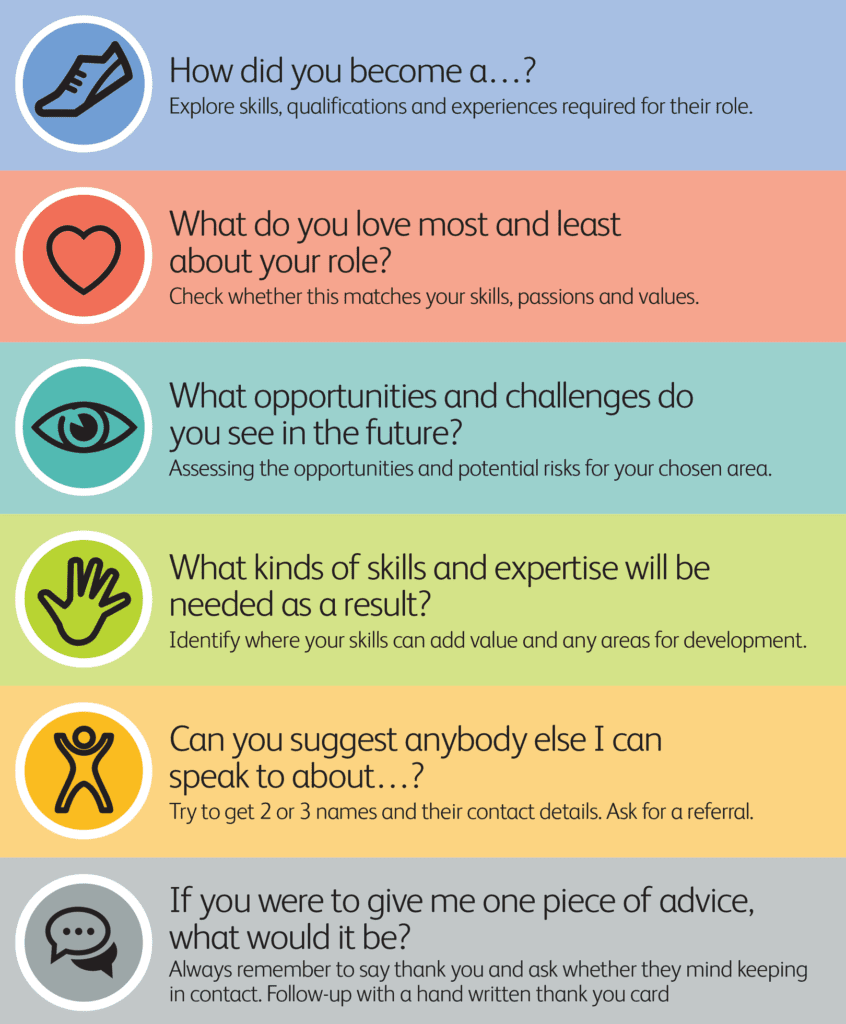
Creative learning conversations
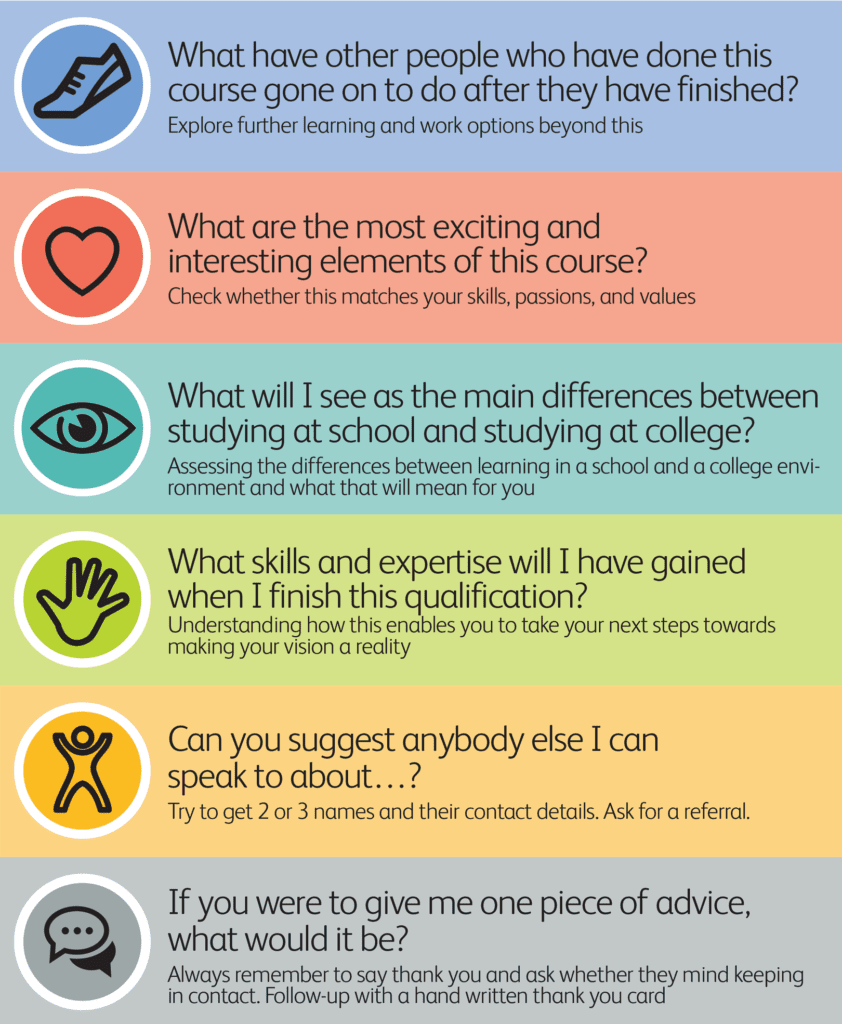
He who asks a question is a fool for a minute; he who does not remains a fool forever.
Chinese Proverb
Why this session is important
To help individual(s) to:
- Explore what kind of support they need to improve their vision and make it a reality
- Identify who in their support network can help them with their particular needs
- Practice having a Creative Work or Creative Learning Conversation with someone in their Support Network
- Further develop their Golden Ticket as a result of the Creative Conversations they have
What you will need
- Copies of the Ask it Activity for each individual
- Ask It Resources
- Paper/pens
- 30 minutes dependent on availability of time
How to do it
Explain that having created a Golden Ticket that is inspiring and meaningful and identified a Support Network they can connect with and reach out to, Ask It focuses on identifying what particular help is needed just now and the questions to ask to get this help. These questions may be two-fold – focused on vision or reality:
- Developing the vision further – building confidence and self-belief that they can make their vision real or gaining creative input to add more to the vision to gain more commitment and conviction to making it happen.
- Making the vision real – gaining some practical help overcoming obstacles that may prevent the vision happen or connecting with others who can provide information that may be missing at the moment.
Encourage individuals to take a look at their Golden Ticket and review Maximising My Circle of Support to consider what kind of support they feel they need to ask for just now. Is it focused on developing the vision further and therefore they need help with building confidence, role model support or creative thinking?
Is it perhaps about the process of making the vision real and instead they need to ask for support from experts, people who can connect them to others or who can provide an element of realism and challenge to their vision? Encourage individuals to identify what help they need now and use the tick boxes on The Support I Need to list these.
Using the names of those people in their support network, help them to identify who they could ask to provide them with the help they need. Encourage them to think about the questions they would need to ask and how they may approach them to ask these questions. The template for Creative Working Conversations and Creative Learning Conversations may help them to frame their questions.
What other questions to ask/points to make
Again, be prepared to share some of your story, if it is appropriate. Consider where you have used your network to help you at different stages of your career or life. Providing personal examples can help to make the whole process of Connecting with others more achievable and real. Recognise that many of those you are working with will already have been asking questions of their networks for years but perhaps never recognised it as such e.g., places to visit, films to watch, websites etc.
As the session draws to a close discuss:
- What they may have learned, or what has surprised or puzzled them about doing these activities.
- How helpful it is to keep reviewing their Golden Ticket and identify what questions they want to ask from the people supporting them.
- Help them to identify one key action they may wish to take as a result of doing these activities.
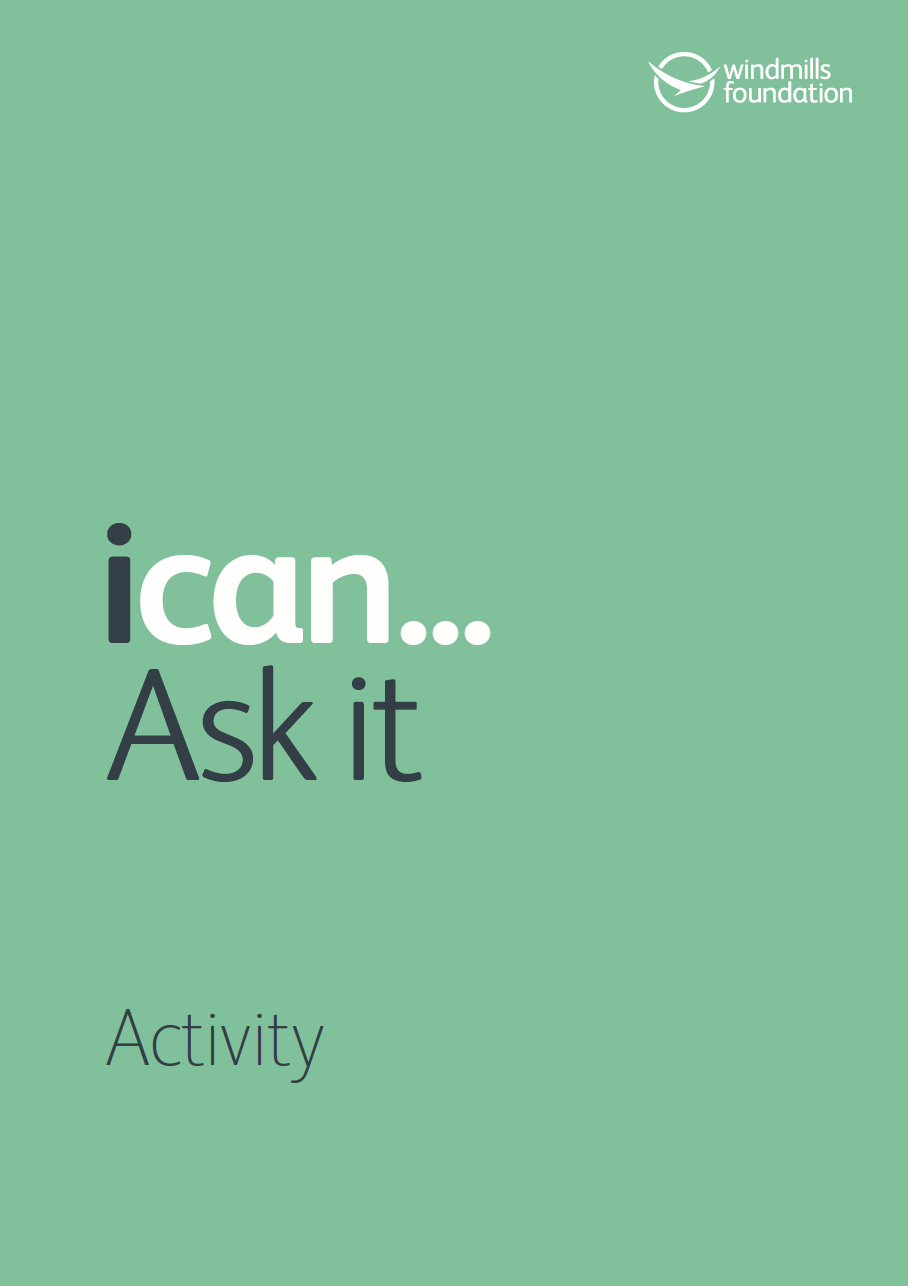
ican…Ask It Activity
Download File (.pdf)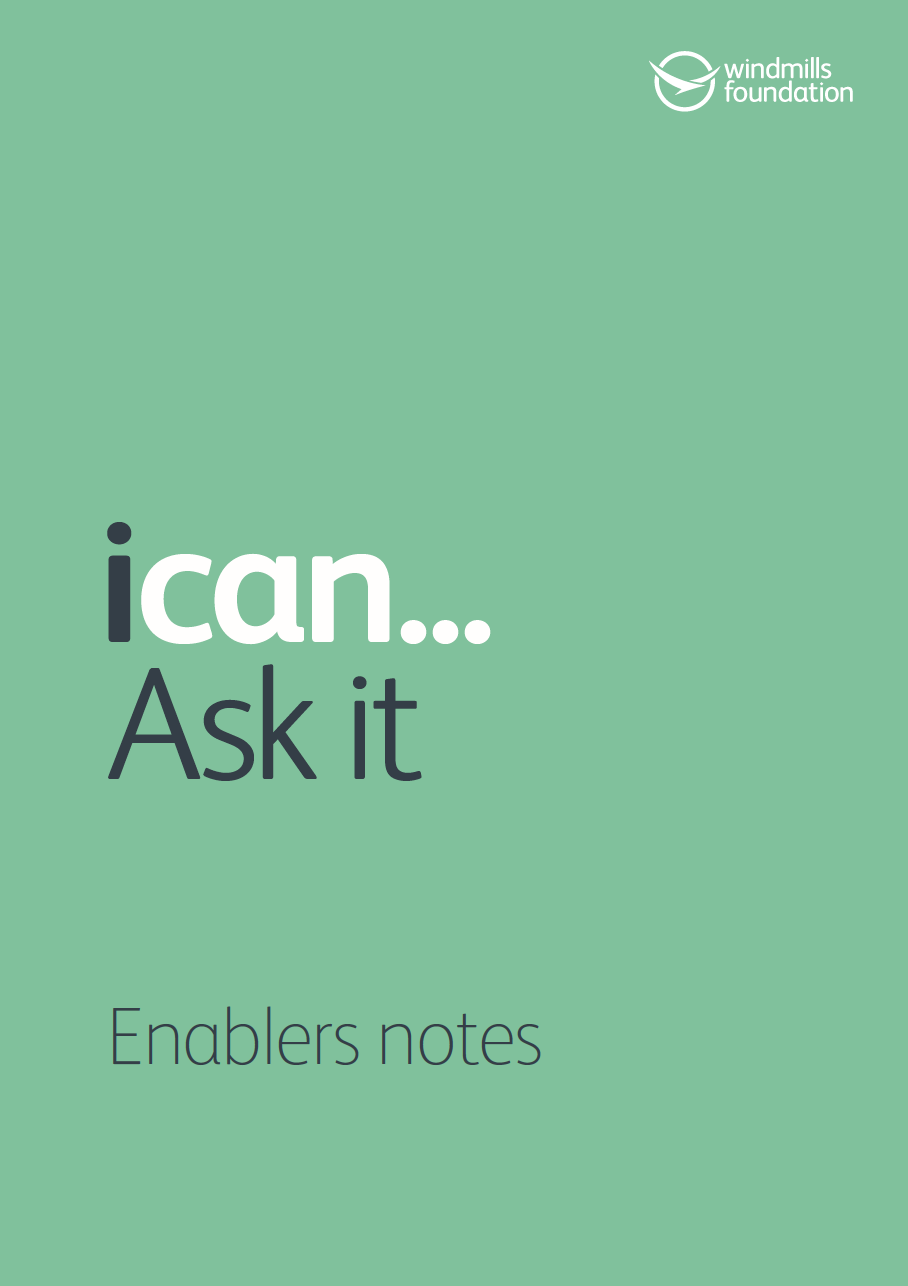
ican…Ask It Enablers Notes
Download File (.pdf)